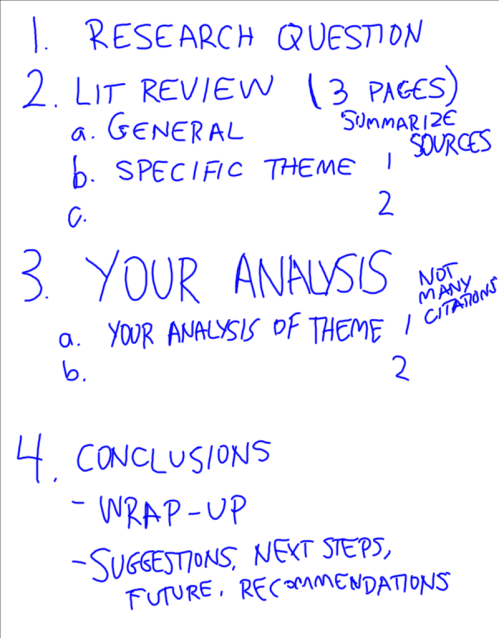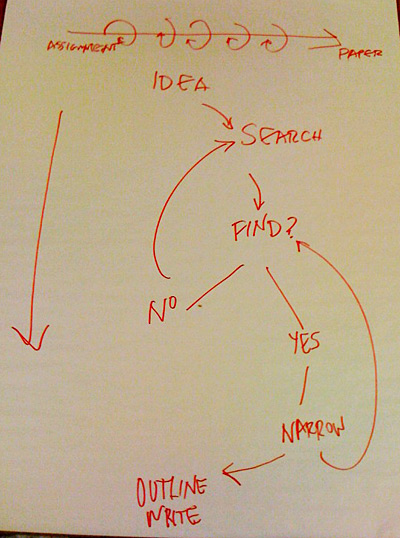We’ll be covering a lot of ground in class tomorrow when we talk about the ethics of information use, so I thought it might be helpful to post some definitions for you to refer to. (We’ll go over this in class, too.)
See you tomorrow,
Prof. Smale
Some Terminology Relevant to the Ethics of Using Information:
Copyright:
“the exclusive right to make copies, license, and otherwise exploit a literary, musical, or artistic work, whether printed, audio, video, etc.: works granted such right by law on or after January 1, 1978, are protected for the lifetime of the author or creator and for a period of 50 years after his or her death.”
Fair Use:
“the conditions under which you can use material that is copyrighted by someone else without paying royalties ”
Public Domain:
“the status of a literary work or an invention whose copyright or patent has expired or that never had such protection.”
Academic Integrity:
“Academic Integrity is the idea of faculty and students engaging in the proces of teaching and learning with a high level of respect for each other and great attention to the values of trust, honesty, and fairness.”
Plagiarism:
“the unauthorized use or close imitation of the language and thoughts of another author and the representation of them as one’s own original work.”
Open Access:
“Open-access (OA) literature is digital, online, free of charge, and free of most copyright and licensing restrictions. ”
Open Source:
“A method and philosophy for software licensing and distribution designed to encourage use and improvement of software written by volunteers by ensuring that anyone can copy the source code and modify it freely.”
All definitions from Dictionary.com, with the exception of Academic Integrity, which is from the Academic Integrity at City Tech page on the college website, and Open Access, which is from Peter Suber’s Open Access Overview.






